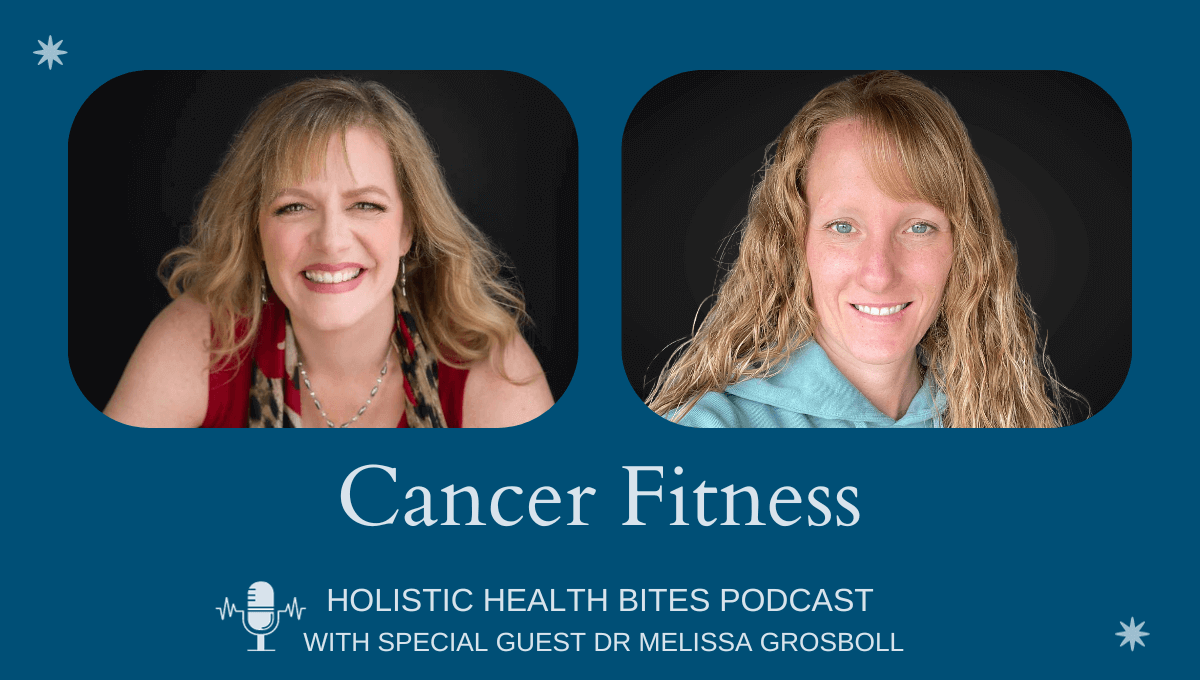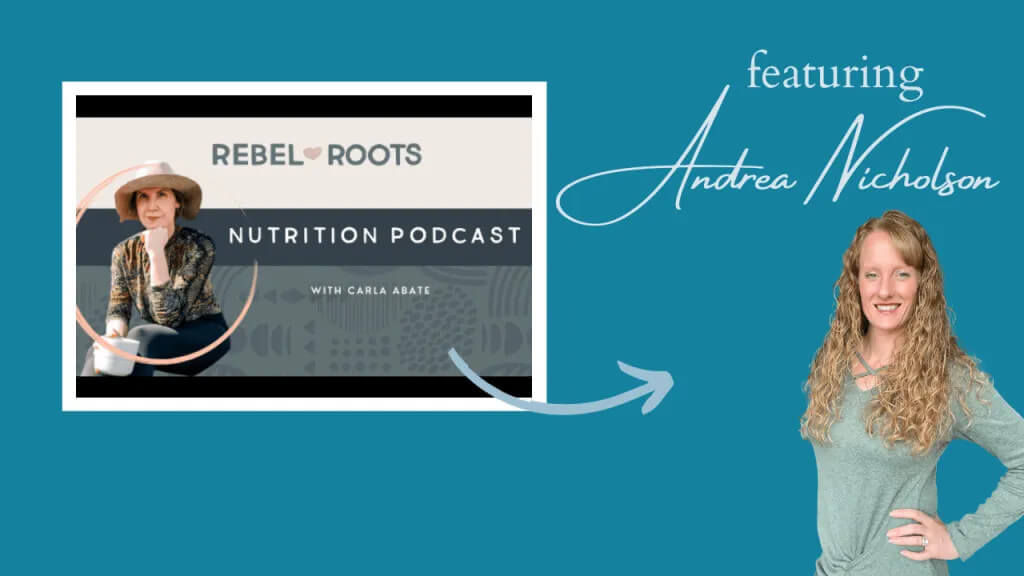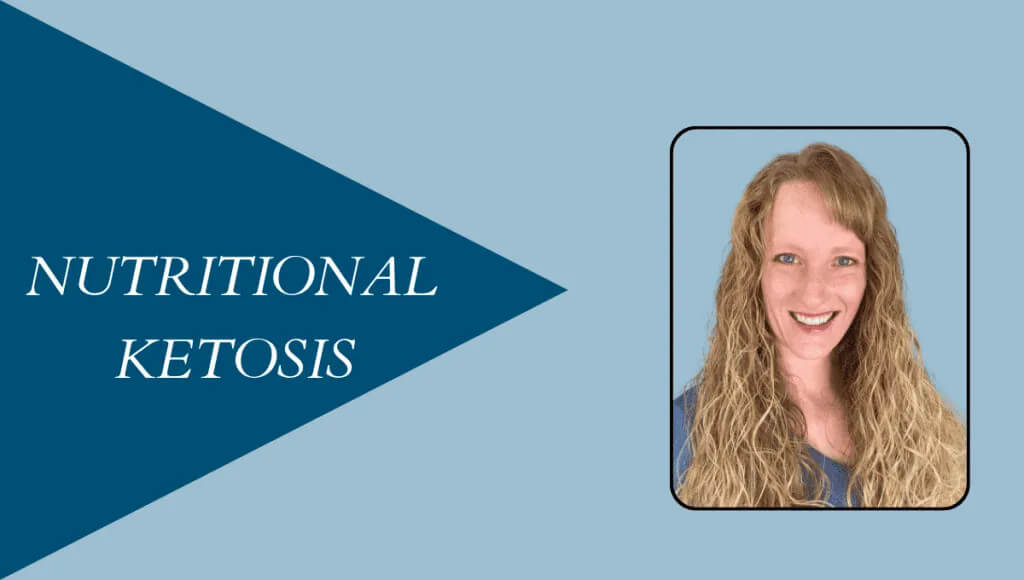 In this episode of the Holistic Health Bites podcast, retired chiropractor and cancer survivor, Dr. Melissa Grosboll, shares her personal journey of receiving a breast cancer diagnosis and her subsequent research into exercise for cancer. She emphasizes the importance of tailoring exercise programs for individuals undergoing different types of cancer treatments and the need for accountability and guidance in order to safely and effectively recover. Dr. Grosboll also discusses the significance of mindset and taking control of one's health when facing a diagnosis, as well as the importance of a healthy diet and a holistic lifestyle that includes quality sleep, self-care, and avoiding toxins in personal care products and cleaning supplies. If you're looking for insights and inspiration on navigating a cancer journey, this episode is a must-listen.
In this episode of the Holistic Health Bites podcast, retired chiropractor and cancer survivor, Dr. Melissa Grosboll, shares her personal journey of receiving a breast cancer diagnosis and her subsequent research into exercise for cancer. She emphasizes the importance of tailoring exercise programs for individuals undergoing different types of cancer treatments and the need for accountability and guidance in order to safely and effectively recover. Dr. Grosboll also discusses the significance of mindset and taking control of one's health when facing a diagnosis, as well as the importance of a healthy diet and a holistic lifestyle that includes quality sleep, self-care, and avoiding toxins in personal care products and cleaning supplies. If you're looking for insights and inspiration on navigating a cancer journey, this episode is a must-listen.To connect with Dr. Melissa, you can reach out to her via email at drgrosboll@gmail.com or connect with her on Facebook and YouTube using the provided links.
Read more... Andrea Nicholson, Functional Nutritionist and Insulin Resistance expert was recently featured on the Rebel Roots Nutrition Podcast by Carla Abate. In this episode, Andrea shared tips and strategies for navigating sugar during the holidays.
Andrea Nicholson, Functional Nutritionist and Insulin Resistance expert was recently featured on the Rebel Roots Nutrition Podcast by Carla Abate. In this episode, Andrea shared tips and strategies for navigating sugar during the holidays.  The blog post highlights the benefits and uses of nutritional ketosis in prediabetes, type 2 diabetes, and insulin resistance conditions. It points out that diabetes and prediabetes are prevalent, with many people unaware they have the condition. These conditions come with significant costs, increased risk of early mortality, and complications such as blindness and heart disease. The post discusses the limitations of low-calorie diets, which may help reduce blood sugar and insulin levels but are unsustainable and can result in nutrient deficiencies and rebound syndrome.
The blog post highlights the benefits and uses of nutritional ketosis in prediabetes, type 2 diabetes, and insulin resistance conditions. It points out that diabetes and prediabetes are prevalent, with many people unaware they have the condition. These conditions come with significant costs, increased risk of early mortality, and complications such as blindness and heart disease. The post discusses the limitations of low-calorie diets, which may help reduce blood sugar and insulin levels but are unsustainable and can result in nutrient deficiencies and rebound syndrome.On the other hand, very low carbohydrate diets that induce nutritional ketosis have been proven to be effective and sustainable long-term. By running on fat and ketone bodies instead of glucose, the body can lower blood sugars, insulin, inflammation, and oxidative stress. The post explains that ketones are a nutrient created by the liver from fat, providing energy and serving as cell signaling molecules. Research has shown that many cell types in the body prefer to run on ketones, even in the presence of glucose. The post also discusses the testing of ketone levels using a blood ketone meter and the importance of individualized guidance and medical supervision when starting a nutritional ketosis plan.
Overall, the blog post emphasizes that a well-formulated nutritional ketosis plan can be a long-term strategy for managing blood sugars, restoring insulin sensitivity, reducing inflammation, and improving overall health outcomes in people with prediabetes, type 2 diabetes, and insulin resistance conditions. It cautions against attempting any changes in medication without consulting with a healthcare professional and offers a solution-oriented approach through the Insulin Resistance Solved System®️ for personalized support and guidance.
Read more... Discover holistic approaches to managing autoimmunity in this engaging conversation between Andrea and Susie Day on the latest episode of the Holistic Health Bites podcast. Susie shares her personal journey with rheumatoid arthritis and how making dietary changes, practicing mindfulness, and incorporating energy medicine and essential oils have transformed her health and well-being. Learn about the benefits of cutting out certain foods, finding suitable replacements, and embracing a healthy lifestyle to effectively manage chronic conditions. Don't miss out on Susie's favorite essential oil blends for calming, pain relief, and boosting energy. Connect with Susie and explore her Autoimmune Relief Bundle and Blooming In Midlife Autoimmune Re-Balance Blog for more helpful resources.
Discover holistic approaches to managing autoimmunity in this engaging conversation between Andrea and Susie Day on the latest episode of the Holistic Health Bites podcast. Susie shares her personal journey with rheumatoid arthritis and how making dietary changes, practicing mindfulness, and incorporating energy medicine and essential oils have transformed her health and well-being. Learn about the benefits of cutting out certain foods, finding suitable replacements, and embracing a healthy lifestyle to effectively manage chronic conditions. Don't miss out on Susie's favorite essential oil blends for calming, pain relief, and boosting energy. Connect with Susie and explore her Autoimmune Relief Bundle and Blooming In Midlife Autoimmune Re-Balance Blog for more helpful resources. In a recent episode of The Begin Within Health Show with Nate Sleger, functional nutritionist Andrea Nicholson discusses the important gut-brain connection and how it impacts overall wellness and mental health. They also delve into the significance of digestive and metabolic health, emphasizing the need to investigate and address root causes early on. Using her three phase approach to Functional Health, Nicholson emphasizes the importance of thorough investigation, personalized protocols, and establishing lifestyle habits that cater to individual needs in order to achieve and maintain long-term health and vitality. To listen to the full episode and access more episodes of The Begin Within Health Show, visit their website.
In a recent episode of The Begin Within Health Show with Nate Sleger, functional nutritionist Andrea Nicholson discusses the important gut-brain connection and how it impacts overall wellness and mental health. They also delve into the significance of digestive and metabolic health, emphasizing the need to investigate and address root causes early on. Using her three phase approach to Functional Health, Nicholson emphasizes the importance of thorough investigation, personalized protocols, and establishing lifestyle habits that cater to individual needs in order to achieve and maintain long-term health and vitality. To listen to the full episode and access more episodes of The Begin Within Health Show, visit their website.















